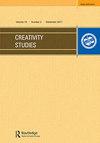边境地区的创意阶层?波兰通勤学者个案
Q1 Social Sciences
引用次数: 1
摘要
Richard Florida声称,“创意阶层”的成员搬到了城市,被认为是开放的,有利于创意工作——佛罗里达州坚持认为这是西方世界的基本经济驱动力。这包括学术界和研究人员,并导致知识和技能的转移。由于“创造性阶级”的概念是在美国创造的,我们可能会提出一个问题,即它是否适用于其他社会背景。本论文的地理重点是波兰边境地区。我们调查了国际学术通勤者,即从邻国前往波兰工作的学者,如何对知识转移或更广泛地说,“创造性转移”做出贡献。这项研究是一个涉及100名在波兰工作的外国出生学者的更广泛研究项目的一部分,使用了对国际通勤学者(而不是目前居住在波兰的学者)的16次深入采访的子样本。研究结果表明,大多数国际通勤学者严格来波兰授课。他们专注于这一目标,不参与波兰的社会或文化生活。尽管他们在本国赚的钱不够,但他们不想永久搬到波兰。相反,他们利用居住在边境附近的机会。这些做法使他们更像是普通的经济移民,而不是“创造性阶层”的成员,尽管可以发现一些“创造性转移”的痕迹。本文章由计算机程序翻译,如有差异,请以英文原文为准。
CREATIVE CLASS IN THE BORDERLANDS? THE CASE OF COMMUTING SCHOLARS IN POLAND
Richard Florida claims that members of the “creative class” move to cities, perceived as open and conducive to creative work – a phenomenon which Florida insists is a fundamental economic driver in the Western world. This includes academics and researchers and results in the transfer of knowledge and skills. As the concept of “creative class” was coined in the United States, we may pose the question if it is applicable in other social contexts. The geographical focus of the current paper is on the Polish borderlands. We investigate how international academic commuters, i.e. academics travelling to work in Poland from the neighbouring countries, contribute to the knowledge transfer, or more broadly, the “creative transfer”. This study, a part of a broader research project involving 100 foreign-born scholars working in Poland, uses a sub-sample of the 16 in-depth interviews with international commuting scholars (as opposed to those who presently live in Poland). The results show that most of the internationally commuting scholars come to Poland strictly to deliver teaching. Focused on this goal, they do not take part in social or cultural life in Poland. Although not earning enough money in their home countries, they do not want to move permanently to Poland. Instead, they use the opportunities given by living near the border. These practices make them more similar to regular economic migrants, rather than members of the “creative class”, although some traces of the “creative transfer” can be identified.
求助全文
通过发布文献求助,成功后即可免费获取论文全文。
去求助
来源期刊

Creativity Studies
Social Sciences-Cultural Studies
CiteScore
3.20
自引率
0.00%
发文量
38
审稿时长
15 weeks
期刊介绍:
Creativity Studies accepts original research articles with a focus on communication within the creative society. The journal welcomes contributions from scholars from diverse disciplines such as philosophy, sociology, history, political, communication and information sciences. Creativity Studies also publishes survey papers and descriptions of academic events in this area. The journal issues will be organized around different issues on creativity.
 求助内容:
求助内容: 应助结果提醒方式:
应助结果提醒方式:


